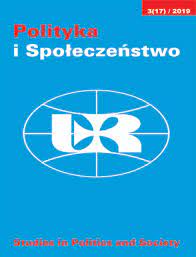Evolution of neocons in US policy as a result of the September 11, 2001 attacks and its consequences
DOI:
https://doi.org/10.15584/polispol.2019.3.6Keywords:
neoconservatism, foreign policy, hard power, doctrineAbstract
The article showcases and examines the evolution of the neoconservative strand of US politics and its influence on the country’s international politics, with a particular analytical emphasis on the effects of the September 11, 2001 attacks and the ensuing counter-terrorism measures on the part of the USA. The importance of the neocon agenda has grown considerably in the wake of the WTC and Pentagon attacks and, as a result, has shaped the core of US Middle Eastern politics. Simultaneously, the neocon takeover of US politics marginalized the impact of both the conservative and the liberal circles. As a consequence, the US national security evolved into a hard power model based on military authority. Such a political practice yielded short-term profits (and – at best – media benefits and image gains) for the USA, but in the long run it also posed a threat to the West.Downloads
Published
2020-10-22
How to Cite
Milczanowski, M. (2020). Evolution of neocons in US policy as a result of the September 11, 2001 attacks and its consequences. Studies in Politics and Society, 17(3), 103–117. https://doi.org/10.15584/polispol.2019.3.6
Issue
Section
Articles
License

This work is licensed under a Creative Commons Attribution-ShareAlike 4.0 International License.


